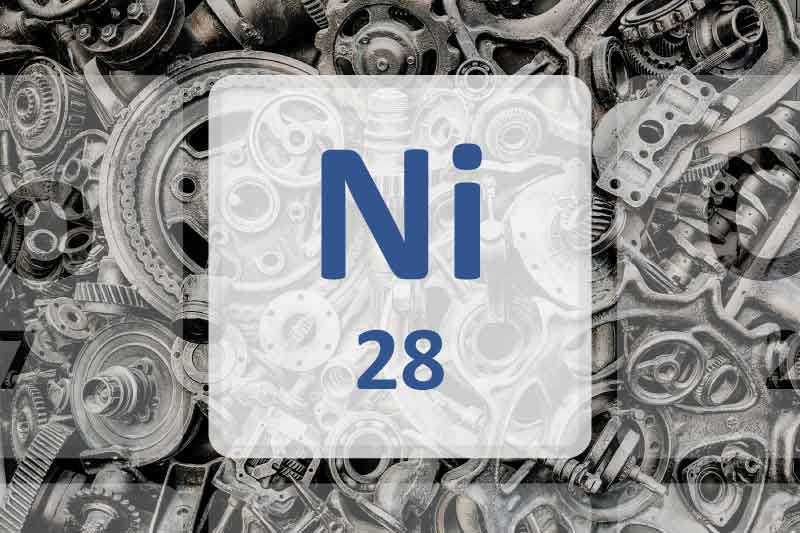What is Tantalum
Tantalum is a metallic element. Tantalum is mainly found in tantalite and often co-exists with niobium. Tantalum is extremely resistant to corrosion. It can be used to make evaporating vessels. It can also be used as electrodes, rectifiers, and electrolytic capacitors for electronic tubes. In the medical industry, tantalum can be used to make sheets or threads to mend damaged human tissue.
| I | O | |||||||||||||||||
|---|---|---|---|---|---|---|---|---|---|---|---|---|---|---|---|---|---|---|
| 1 | 1 H |
II | III | IV | V | VI | VII | 2 He |
||||||||||
| 2 | 3 Li |
4 Be |
5 B |
6 C |
7 N |
8 O |
9 F |
10 Ne |
||||||||||
| 3 | 11 Na |
12 Mg |
III | IV | V | VI | VII | VIII | I | II | 13 Al |
14 Si |
15 P |
16 S |
17 Cl |
18 Ar |
||
| 4 | 19 K |
20 Ca |
21 Sc |
22 Ti |
23 V |
24 Cr |
25 Mn |
26 Fe |
27 Co |
28 Ni |
29 Cu |
30 Zn |
31 Ga |
32 Gc |
33 As |
34 Se |
35 Br |
36 Kr |
| 5 | 37 Rb |
38 Sr |
39 Y |
40 Zr |
41 Nb |
42 Mo |
43 Tc |
44 Ru |
45 Rh |
46 Pd |
47 Ag |
48 Cd |
49 In |
50 Sn |
51 Sb |
52 Te |
53 I |
54 Xe |
| 6 | 55 Cs |
56 Ba |
57-71 La-Lu |
72 Hf |
73 Ta |
74 W |
75 Re |
76 Os |
77 Ir |
78 Pt |
79 Au |
80 Hg |
81 Tl |
82 Pb |
83 Bi |
84 Po |
85 At |
86 Rn |
| 7 | 87 Fr |
88 Ra |
89-103 Ac-Lr |
104 Rf |
105 Db |
106 Sg |
107 Bh |
108 Hs |
109 Mt |
110 Ds |
111 Rg |
112 Uub |
||||||
| La-Lu | 57 La |
58 Ce |
59 Pr |
60 Nd |
61 Pm |
62 Sm |
63 Eu |
64 Gd |
65 Tb |
66 Dy |
67 Ho |
68 Er |
69 Tm |
70 Yb |
71 Lu |
|||
| Ac-Lr | 89 Ac |
90 Th |
91 Pa |
92 U |
93 Np |
94 Pu |
95 Am |
96 Cm |
97 Bk |
98 Cf |
99 Es |
100 Fm |
101 Md |
102 No |
103 Lr |
|||
- Item Name: Tantalum
- Element Symbol: Ta
- Atomic Number: 73
- Atomic Weight: 180.9
- Atomic Radius: 143pm
- Density: 16.6g/cm3
- Melting Point: 2996°C
- Boiling Point: 5425°C
- Electronic Layout: [Xe]4f145d36s2
The Atomic Structure of Tantalum
Physical Properties
Tantalum is a gray metal with a body-centered cubic crystal structure. Tantalum has a lower hardness, and its hardness is also related to the oxygen content. Tantalum is a refractory metal with a melting point of 2995°C. Tantalum is ductile and can be drawn into filaments. Its coefficient of thermal expansion is small.
Chemical Properties
Tantalum has very good chemical properties. It has extremely high corrosion resistance. Experiments have shown that tantalum does not react with alkaline solution, chlorine gas, bromine water, dilute sulfuric acid and many other substances at room temperature. Tantalum reacts only with hydrofluoric acid and hot concentrated sulfuric acid. Such a situation is relatively rare in metals.
Thermal Corrosion Resistance of Tantalum
Tantalum can improve the thermal corrosion resistance of alloys. The higher the tantalum content, the stronger the thermal corrosion resistance of the alloy. In some alloys, tantalum is used to replace tungsten for better high temperature corrosion resistance.
Solid Solution Strengthening Effect of Tantalum
Like niobium, tantalum has a much larger atomic radius than nickel, iron, and cobalt. Therefore, tantalum also has a very obvious solid solution strengthening effect. This solid solution strengthening effect can significantly improve the instantaneous tensile strength and creep properties of the alloy.
However, in some multiphase alloys, only 5% to 10% of tantalum acts as solid solution strengthening.
Precipitation Strengthening Effect of Tantalum
In precipitation strengthened superalloys, about 80% to 90% of tantalum enters the precipitation strengthened phase γ'. The addition of tantalum increases the amount and dissolution temperature of the strengthening phase, changes the structure of the strengthening phase, and improves the stability of the strengthening phase. This significantly improves the strength and creep properties of the alloy.
In addition, the addition of tantalum can also improve the microstructure stability of the alloy. Prevents the precipitation of harmful phases during aging.
Conclusion
Tantalum is a refractory metal that improves the high temperature corrosion resistance of alloys.
Tantalum plays a role in both solid solution strengthening and precipitation strengthening in superalloys. Among them, precipitation strengthening dominates.
Tantalum has a high price and is a strategic metal. Therefore, it should be avoided as much as possible in alloys.
We manufacture high performance superalloys. Please contact us for a quote.

















